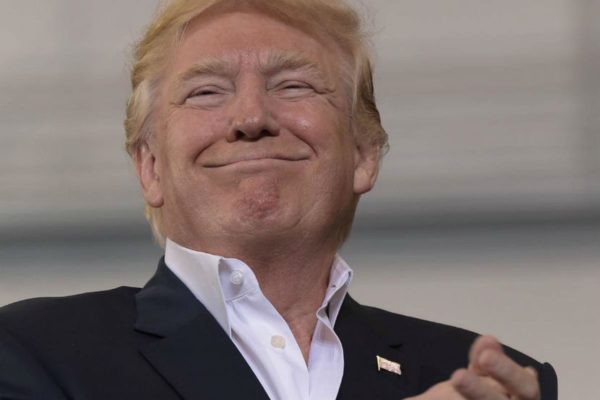One of my favorite Martin Luther King Jr. quotes is “There comes a time when one must take a position that is neither safe nor political nor popular, but he must take it because his conscience tells him it is right.” These words ring truer now more than ever in light of President Trump’s recent comments questioning why we are letting all these people from “s—hole countries” come here.
The countries to which he referred included Haiti, El Salvador and African nations. Perhaps the fact that these individuals are Black and Brown is a mere coincidence. Surely Trump would not be so blatantly racist? If there was any question about the racially motivated nature behind his comments, this was put to rest when he later said that the U.S. should have more people coming in from places like Norway.
MLK understood that there comes a point in time where you have to stand on your principles, speak truth to power and not defend the indefensible. It has become abundantly clear that there is nothing Trump can say or do that will result in his supporters holding him accountable and calling his behavior for what it is: racism.
On this MLK day it would be disingenuous for supporters of Trump to celebrate the ideals of MLK yet remain silent on, or worse, defend, the repeated racist statements that come out of Trump’s mouth. Silence (or worse defense of Trump) is the moral equivalent of endorsement.
The unwillingness of Trump supporters to ever call him out for racism is consistent with what sociologist Joe Feagin has referred to as the “paradoxical phenomenon” of white racism, where some white people claim not to be racist yet hide or deny their racist attitudes through euphemisms and code words.
Trump does not publicly use explicitly racially derogatory language, something that even his most diehard supporters would begrudgingly have to admit was racist. Instead, he uses racially coded language.
For example, some researchers argue that instead of overtly criticizing President Obama’s race, Trump peddled the birther myth about Obama being born in Kenya instead of the United States. Trump has mastered the subtleties of communicating racist sentiments without explicitly using race in his language.
Imagine if President Barack Obama had referred to European countries the same way as Trump, and stated that the U.S. should have more people coming from countries such as Nigeria and Ghana.
When Trump made comments about a federal judge’s Mexican heritage making him unfit to preside over a case, Trump loyalist Jeffrey Lord spun it as Trump actually calling out racism. To his credit, Paul Ryan referred to Trump’s words as “textbook racism”, but has done little else to hold Trump accountable.
It has been especially painful and embarrassing to watch CNN’s token Black Trump loyalist Paris Dennard repeatedly attempt to defend Trump’s words and actions. He inexplicably defended Trump’s Charlottesville comments about there being hatred, bigotry and violence on both sides, and then suggested that the Neo-Nazi marchers in Charlottesville received a bad rap from the media.
In one CNN segment when he was asked how he, as a Black man, could support Trump who supported a candidate who talked about days being great in slavery, Paris instead dodged the question and turned the conversation into a debate about his blackness.
Political differences in ideology is one thing. Defending blatantly racist comments is another.
Some may argue that this is nothing more than a partisan opinion. However, this is not the case. There are several individuals with whom I have political differences of opinion (Ana Navarro and Tara Setmaye come to mind), yet I have been impressed with their principled stand, especially when so few members of their party and Trump supporters are willing to do so.
For the good and decent Americans on the sidelines, when will we take the politically unpopular position among Trump’s base and “disavow” Trump for his racism? Until we answer that question, any celebration of MLK Day will be symbolism without substance.
We know who Trump is. The question is who are we? To Trump supporters who truly don’t embrace racist views, who are you?
Kevin Cokley is Director of the Institute for Urban Policy Research and Analysis, and a Fellow of the UT System Academy of Distinguished Teachers.
A version of this op-ed appeared in Psychology Today, McAllen Monitor, Austin American Statesman and the Corpus Christi Caller Times.
To view more op-eds from Texas Perspectives, click here.
Like us on Facebook.




